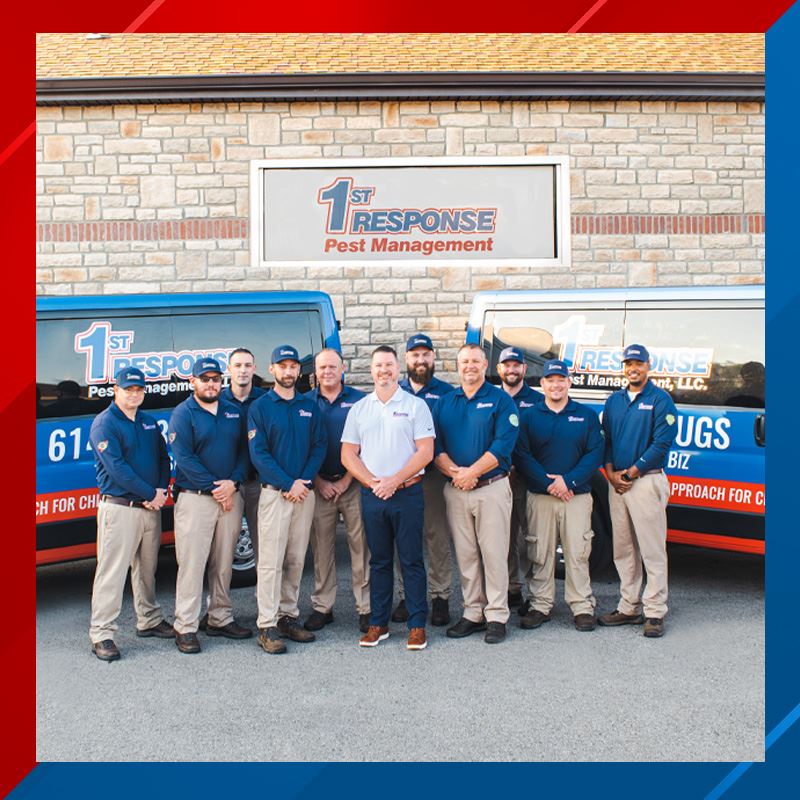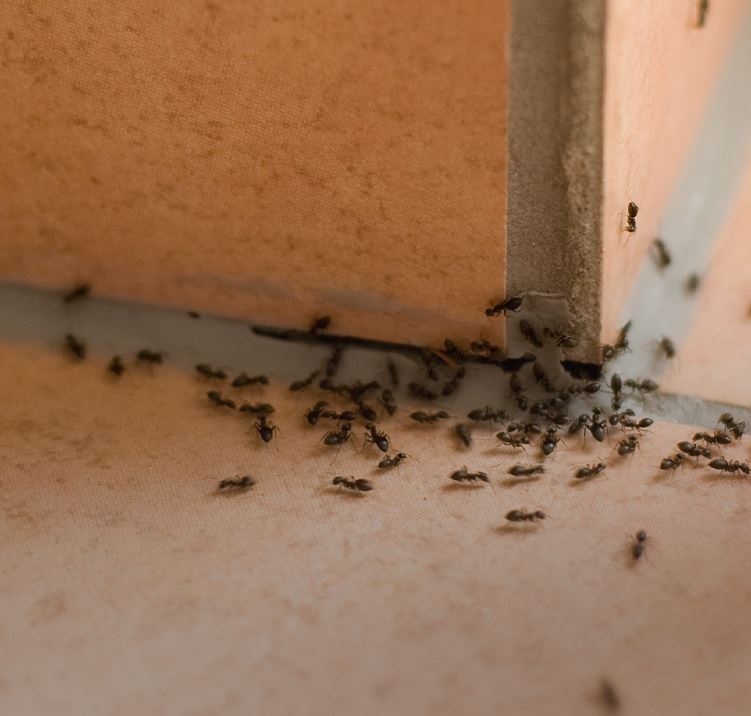
Expert Ant Control Services in Columbus, OH
Professional Ant Removal and Prevention in Columbus & Central Ohio
As a locally owned and family-operated pest control company providing quality pest control for homes and businesses in Powell, the greater Columbus area, and Central Ohio since 2006, 1st Response Pest Management is the best choice for effective ant control and removal.
When you choose 1st Response Pest Management to eliminate ants from your property, we guarantee your satisfaction. Now answering phones 24/7, you can count on us for prompt, effective service. To get started with a trusted ant control plan, sign up for a free consultation with us today and receive your free custom quote!
Explore Our 365 White Care Plan
The 1st Response Ant Control Guarantee
At 1st Response Pest Management, we offer comprehensive pest control services that quickly target and eliminate ants, including pavement ants, odorous house ants, pharaoh ants, and carpenter ants. Our treatments not only focus on pest removal, but are also designed to prevent ants from returning in the future. When you choose our locally owned and family-operated company for your ant control needs, you can say goodbye to ants, guaranteed!
Fill out our online contact form or get in touch with our Columbus ant exterminators by calling (614) 591-7767.

Benefits You Get When Using Our Services
-
5-Star White Glove ServiceAll of our Technicians are professionally trained in the art of white glove service. A white glove service is a service done to perfection, and that’s what we strive to deliver at 1st Response.
-
Locally Owned, Family-Operated1st Response Pest Management is a locally owned, family-operated pest management company proudly servicing all of Greater Columbus and Central Ohio since 2006.
-
Award-Winning Customer Service1st Response has earned some of the home service industry’s most coveted customer service awards. We are proud of our outstanding customer service, and we make it our business to earn the trust and loyalty of all our customers.
Why Hire a Professional to Deal With an Ant Infestation?
So you've got ants—that's no big deal, right? After all, what's so hard about grabbing a can of ant spray and taking care of the problem yourself? Don't be fooled! Just because ant infestations are common doesn't mean that they're easy to get rid of. Ants are surprisingly resilient, and because they live in enormous colonies, it can be very difficult to eliminate them all and keep them from returning.
Hiring a professional to deal with an ant infestation has several advantages over trying to tackle the problem yourself. Here are some reasons why:
- Proper Identification: A professional pest control technician can properly identify the species of ant causing the infestation. This is important because different ant species require different methods of control.
- Effective Treatment: Pest control technicians have access to more effective and targeted ant control treatments that are not available to the general public. They also have the expertise to apply these treatments safely and effectively.
- Long-Term Solutions: Ant infestations can be persistent and difficult to control. A professional ant exterminator can provide long-term solutions that address the root cause of the infestation, rather than just treating the symptoms.
- Safety: Ant control treatments can be hazardous if not used correctly. Professional pest control technicians have the training and experience to apply treatments safely, protecting your family and pets.
- Cost-Effectiveness: While it may seem expensive to hire a professional, it can be more cost-effective in the long run. Attempting to control an ant infestation yourself can lead to repeated treatments and additional costs. A qualified ant control technician can provide a more comprehensive and effective solution that saves you time and money in the long run.
Overall, hiring our Columbus ant exterminators to deal with an ant infestation is a smart decision. Our team can identify the problem, provide effective treatment, and offer long-term solutions that keep your home or business ant-free.
Prevent Ant Infestations with Proper Home Maintenance
Dealing with an ant infestation can be frustrating and time-consuming. However, there are steps you can take to prevent ants from invading your home in the first place. By practicing proper home maintenance, you can create an environment that is less appealing to ants and reduce the risk of infestations.
Here are some tips to help prevent ant infestations:
- Keep your kitchen clean: Ants are attracted to food sources, so make sure to clean up spills, crumbs, and food residue promptly. Store food in airtight containers and regularly empty trash cans.
- Seal entry points: Ants can enter your home through small cracks and gaps. Inspect your home for any openings and seal them with caulk or weatherstripping.
- Trim trees and shrubs: Ants often use branches and foliage as bridges to access your home. Keep trees and shrubs trimmed away from your house to eliminate these access points.
- Remove standing water: Ants need water to survive, so fix any leaks or drips in your home. Additionally, eliminate any standing water sources outside, such as birdbaths or clogged gutters.
- Store firewood away from your home: Ants can nest in firewood piles and easily make their way into your house. Store firewood at least 20 feet away from your home and elevate it off the ground.
By following these preventive measures, you can significantly reduce the chances of an ant infestation in your home. However, if you already have an ant problem, it's best to hire a professional ant exterminator like 1st Response Pest Management. Our experienced team has the knowledge and tools to effectively eliminate ant infestations and provide long-term solutions to keep your home ant-free.
Frequently Asked Questions About Ants

What are ants?
Being common pests that find their way into Ohio homes, ants are a pest that no one wants as a houseguest. They are social insects, living, working, and traveling together in large groups. All adult ants have six legs, three body regions, antennae, and strong, chewing mouthparts. Only the reproductive members of an ant colony have wings and are usually only seen in the spring when they emerge from their colony to find a mate and create a new nest and colony. Some of the most common ants living throughout Greater Columbus and Central Ohio include pavement ants, odorous house ants, Pharaoh ants, and carpenter ants
Are ants dangerous?
Ants can be dangerous, depending on their species. The carpenter ant is a dangerous species because of the significant and costly structural damage they cause inside the wooden structures they choose to nest. The pharaoh ant is another species of dangerous ant. They spread dangerous diseases and seek moisture inside IV lines and patients' wounds in hospitals and other healthcare facilities.
The good news is that most species ofants that we encounter and invade our homes are nuisance species and pose no significant health threats to people or property. However, it is important to understand that all species of ants can contaminate food and surfaces with bacteria and parasites that they carry on the body and legs.
Why do I have an ant problem?
Food attracts ants to properties. If there are food sources around your home, there is a high likelihood that ants will find their way onto your property. Trash, compost, and pet food are common sources of food for ants. They will also forage for food in gardens and outdoor eating areas. While searching for food or trying to escape harsh weather, they will often find their way inside through cracks and crevices in a home’s foundation or exterior walls.


-
About Us
-
Pest Library
-
Areas We Serve